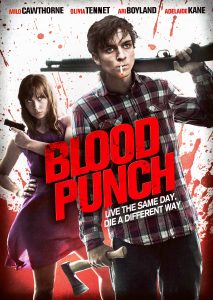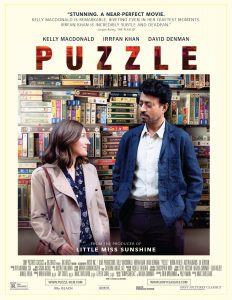
Midway through Takeshi Miike’s 13 Assassins (2010), a man in a tavern jokes, ‘These days, swords are only good for cutting radishes.’
It might seem like a throwaway line meant for laughs but the question of what a samurai sword is good for seems to be the central problem Miike’s film sets out to solve.
13 Assassins unfolds in 1844 at the dawn of the modern Meiji era. The time of the samurai is coming to a close. It is an era, predominantly, of peace. Despite this the half-brother of the Shogun, Lord Naritsugu (Goro Inagaki), behaves sadistically, raping and killing because he enjoys it and because he can. Shinzaemon Shimada (Kōji Kakusho), a weary and noble samurai (first seen quietly fishing), is called upon to restore honour to the land and assassinate him. Horrified by the extent of Naritsugu’s brutality after meeting a woman whose limbs and tongue he chopped off after he massacred her entire family, Shinzaemon doesn’t hesitate to commit himself to the task:
‘As a samurai in this era of peace … I’ve been wishing for a noble death. Now fate has called me here.’ And he decides, ‘I will accomplish your wish with magnificence.’
But it won’t be easy to get access to Naritsugu, who is surrounded by an army of men willing to protect him and die for him. Shinzaemon cannot do it alone. In the tradition of Kurosawa’s Seven Samurai, Shinzaemon will assemble twelve other men, eleven samurai and another less skilled, but no less fierce, who knows the terrain. They will be thirteen assassins in total, setting out on a suicide mission.
Miike spends a considerable amount of time developing these characters, including the veteran Saheita who brings members of his dojo, and Shinzaemon’s nephew, Shinrokuro Shimada (Takayuki Yamada), who has strayed from the samurai code into a life of gambling and womanising. For him, this will be a redemptive mission.

There is also no shortage of exposition of Naritsugu’s barbarism. He is possibly the most despicable villain I’ve ever encountered in a film, fuelled by an uncontrollable madness that, justly, can only end in one way. He rapes, maims, kicks severed heads and kills on mass. Miike encourages us to have a very strong, primitive response to him that is set in motion early in the film when a samurai kneels in a courtyard and commits sepukku in protest to his horrors. It’s a gruesome scene but not in the way you expect; its terror contained in sound rather than vision, in the cool, precise starkness of its presentation rather than an excess of blood and gore.
By the time the film’s action sequences do start, such a significant portion of the film has been devoted to establishing characters that we have a very strong sense of what motivates the violence that unfolds. And this works in the film’s favour, providing a solid framework of honourable and dishonourable acts.
With films like Audition (1999) and Ichi The Killer (2001), Miike is no stranger to viscerally assaulting his audiences. He is a kinetic filmmaker but a thoughtful one. 13 Assassins’ much talked about 45-minute finale is a carefully constructed and choreographed action sequence set around a small village that the assassins have ambushed where they know Naritsugu will be passing through. The 13 assassins think they will be confronted by only 70 men but instead find 200 waiting to attack. The scene is set for chaos, but while it is frenzied in parts it is never confusing. The audience is never unsure of what’s going on or who is fighting whom. Miike stages scenes with graphic intensity; heads roll, and thankfully many of the deaths take place off screen. But the violence is extreme, mostly, in its realism and by the film’s conclusion it feels like we are really looking at the aftermath on a battlefield, with its tangled mess of broken bodies, blood soaked earth and buildings, body parts fusing with mud. It’s completely unsanitised, as far as possible from the comic book violence we have come to associate with samurai films in the modern era.

While the Shogunate is corrupt, seeing its servants as property to dispose of as it pleases, the samurai remain honourable in their pursuits no matter how violent. The film’s final battle is staged as a battle for the honour of the samurai code itself. Miike plays this out by having Shinzaemon face off against a former friend and dojo colleague, Hanbei (Masachika Ichimura), who is now a loyal servant to the malevolent Naritsugu. The code enacted on either side of the conflict is the same; that ‘Dying for one’s master is the way of the samurai.’ Hanbei, justifying his atrocities says, ‘No matter how low I go, Hanbei Kito is a samurai. I won’t hand over my Lord’s head so easily.’ While we see each man fall squarely on either the side of good or evil, each believes he is fighting for the same thing, somewhat blurring that line.
13 Assassins evokes the rich history of samurai cinema but might be best approached as a revisionist samurai film. Set at the end of the medieval Edo period, the samurai was already an endangered species. Naritsugu questions, ‘What makes a samurai warrior? You men mindlessly chant ‘loyalty, duty’ like a Buddhist prayer …’ It is true that the men remain entrenched in a relentless honour code that will inevitably produce a bloodbath but Miike doesn’t navigate this terrain without questioning it. The most honourable and dignified death for a samurai was to die by the sword and they all do. But the words that echo once the film ends are Shinzaemon’s final words to his nephew, that ‘being a samurai is truly a burden.’ As Shinrokuro walks through the carnage, he continues to carry his sword even though it seems, just for a moment that he might abandon it to the mess beneath his feet. But it’s a burden he seems willing to continue to carry for now. A samurai sword is for justice, is for honour, is for life.
13 Assassins screened as part of ACMI’s Samurai Cinema season.






Oh I’d just like to say what a fine review this is Joanna. I remember when I first saw this film I wanted to kill the baddie myself. Nice work, now I’m off to pick some radishes actually.
Thanks Henry, really kind of you and glad you enjoyed the review.